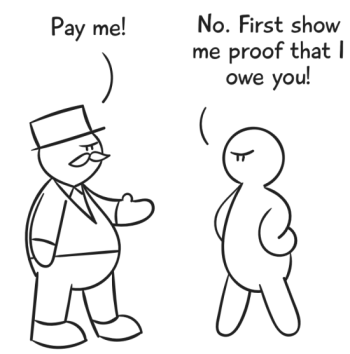
3 minute read • Upsolve is a nonprofit that helps you get out of debt with education and free debt relief tools, like our bankruptcy filing tool. Think TurboTax for bankruptcy. Get free education, customer support, and community. Featured in Forbes 4x and funded by institutions like Harvard University so we'll never ask you for a credit card. Explore our free tool
In a NutshellAbsolutely. Whether you’ve just been served with a lawsuit or already had a judgment entered against you, filing for bankruptcy protection can bring relief.
Once a debt collection lawsuit is filed, it’s almost impossible to stop it. Your options are pretty much limited to:
Yes. As soon as a bankruptcy case is filed, the automatic stay protections kick in. The automatic stay stops legal actions like debt collection lawsuits. That said, there are some exceptions.
The Bankruptcy Code does limit automatic stay protections. The types of civil lawsuits that continue even after a bankruptcy proceeding is filed include:
A bankruptcy filing also doesn’t stop criminal cases from moving forward.
Both foreclosures and evictions typically involve a lawsuit in the state court. Filing bankruptcy will temporarily stop a foreclosure or eviction, but it’s not a permanent solution.
To learn more, check out these articles in our Learning Center:
If you’re sued for an unpaid debt that's valid, whether that’s a credit card or a car loan, fighting the lawsuit may just delay the inevitable. That said, if you don’t believe you owe the debt collector the money, definitely make them show their proof.

Keep in mind that as long as the debt collector can show that you incurred the debt that’s owed to them, there aren’t many legal defenses to non-payment. If there’s no reason to believe that the debt you’re being sued for is invalid, it might be more effort than it’s worth.

Whether you’ve just been served with a summons and complaint or the case has been concluded and a judgment entered against you, filing Chapter 7 or Chapter 13 bankruptcy will stop the lawsuit and related collection actions. This also works if a default judgment has been entered.
If a creditor or debt collector wins a debt collection lawsuit, it won't take them long to ask the court for authorization to garnish your wages. You can stop this before it starts by filing bankruptcy before the wage garnishment.
If the garnishment has already started, bankruptcy law stops it and protects your future wages.
Generally speaking, yes. As long as the underlying debt is dischargeable, the lawsuit debt is dischargeable also. If the debt you got sued over was not dischargeable before, it’ll still be nondischargeable once it’s reduced to a judgment.
One exception is lawsuits for fraud.
If the lawsuit was based on a claim of fraud or other bad acts, the lawsuit debt may not be dischargeable in bankruptcy. If you’re subject to a fraud complaint, your best bet is to get a knowledgeable bankruptcy lawyer to advise you on your best course of action.
Upsolve truly exceeded my expectations in assisting with my case. The entire process was straightforward, and I felt a sense of relief knowing that the caseworker was diligently working on my behalf. They ensured my documents were prepared promptly and efficiently. Thank you, Upsolve, for being an essential part of my journey. Your support took the stress off my shoulders, and I highly recommend your services for anyone facing bankruptcy.
Read more Google reviews ⇾ Explore Free ToolA judgment is a court order. This court order can be turned into a judgment lien that can attach to real estate like your home. The process for this depends on state law. Judgment liens can turn your unsecured debt (like credit card debt) into a secured debt. A bankruptcy judge can make a judgment lien go away if the only real property you own is covered by an exemption.
If you have a lawsuit pending against someone else, the lawsuit is considered an asset of your bankruptcy estate. The most common example is a personal injury case. The bankruptcy trustee handling your Chapter 7 bankruptcy will take over the personal injury suit.
The federal bankruptcy exemptions and some of the states protect personal injury claims, at least to a certain amount. If you’re in an opt-out state and have a personal injury case against someone (even if it’s not been filed yet), make sure you speak to a bankruptcy attorney. They’ll be able to explain how bankruptcy law may or may not affect your case. This is especially important if you have ongoing medical bills you’re hoping to pay with money from the lawsuit.
If you bring a civil case against someone and they file bankruptcy, your lawsuit is stopped by the automatic stay. Since the bankruptcy judge can sanction you for violating the automatic stay, it’s important that you stop your collection actions against that person.
Exception: Child support and related family court matters. As noted above, the automatic stay doesn’t stop certain family court proceedings.
If you’ve been sued by a creditor because you can’t pay your debts, filing bankruptcy will stop the lawsuit. You can also file bankruptcy after you’ve already lost the lawsuit and a judgment has been entered against you.